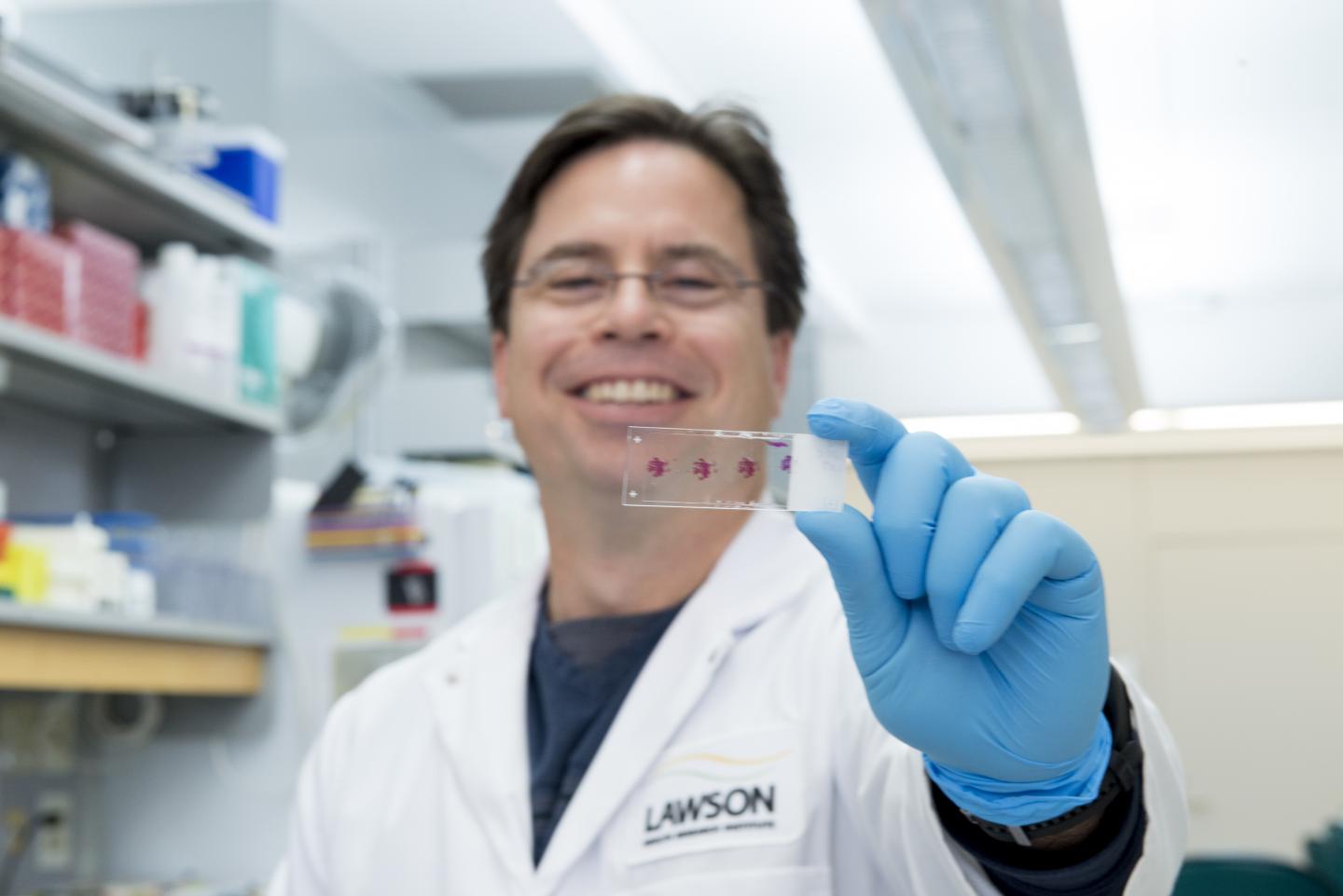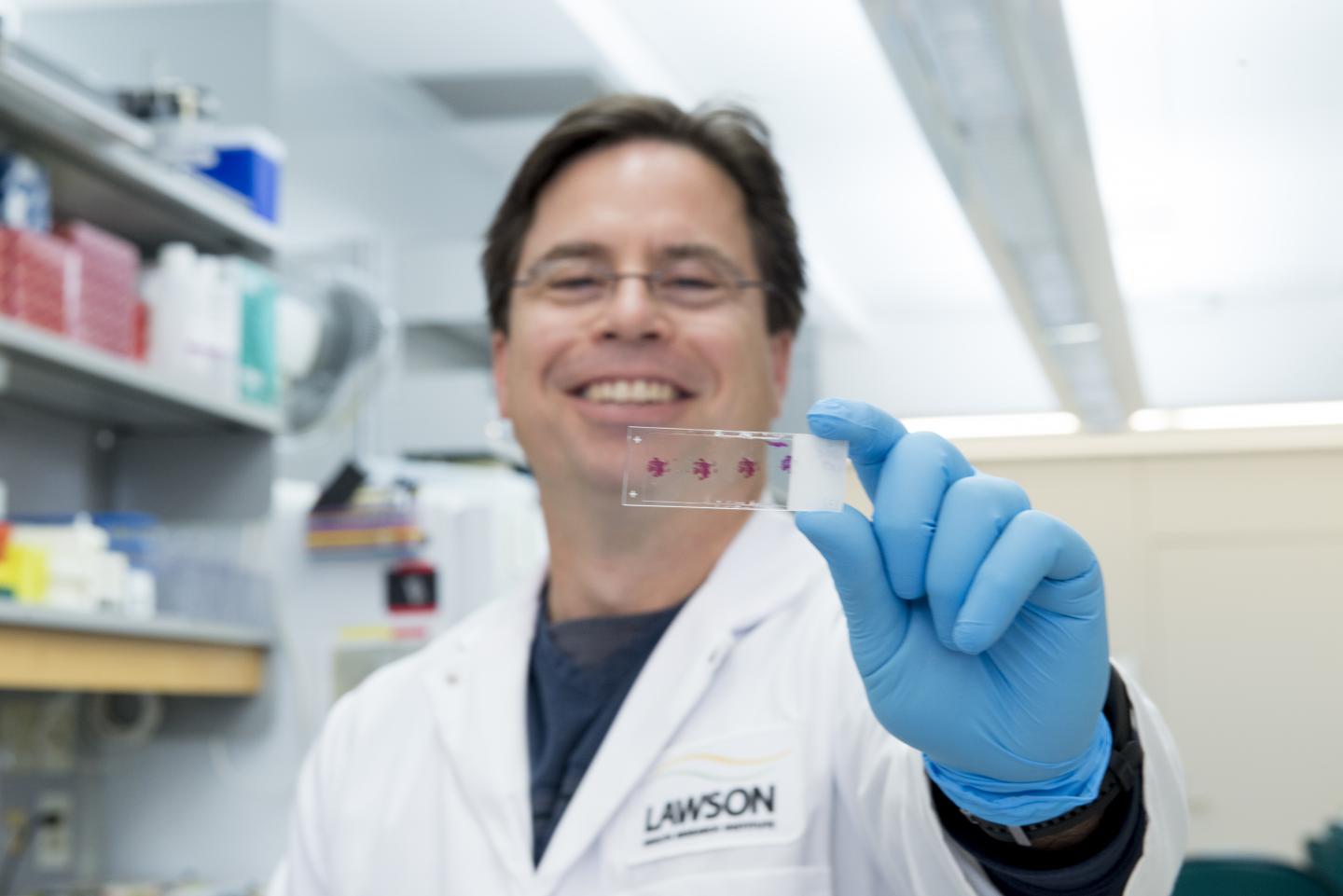
Credit: Schulich School of Medicine & Dentistry
LONDON, ON – In a new study from Lawson Health Research Institute and Western University's Schulich School of Medicine & Dentistry, researchers have found that mutation of a gene called ATRX may lead to increased risk of developing pancreatitis and pancreatic cancer in females. The study marks the first time a sex-specific genetic risk factor for pancreatic cancer has been identified.
The research team examined the effects of ATRX mutation in the adult pancreas using preclinical models. They deleted the ATRX gene and then studied its effect on susceptibility to pancreatic cancer. The team discovered that deleting the gene in females increased susceptibility to pancreatic damage associated with pancreatitis and increased progression to pancreatic cancer. In males, the mutation did not increase the risk of pancreatic injury and actually reduced progression to cancer.
The team's preclinical results were compared to human samples from the International Cancer Genome Consortium database, which includes whole genome sequence analysis for 729 patients. The research team found that 19 per cent of patients carried a mutation within the ATRX gene and that 70 per cent of them were female.
"Pancreatic cancer is a devastating disease that's often diagnosed very late. Patients don't often respond to available therapies and the average life span of patients is less than six months after diagnosis," says Chris Pin, PhD, a Lawson scientist and associate professor at Schulich Medicine & Dentistry. "We need to catch the disease much earlier."
Pancreatitis, a disease characterized by inflammation of the pancreas, is one of the most significant risk factors for developing pancreatic cancer. While further research is needed, females with pancreatitis could one day be identified as a high risk population that should be screened for this genetic mutation.
"For every patient and for every cancer, there's a specific set of gene mutations and environmental conditions that make it very unique. Identifying those differences is very important because it will affect how we treat the disease," explains Pin. "Understanding the role of ATRX in pancreatic cancer could result in new female-specific targets for therapy and the development of new markers for early detection."
In a follow-up study, Dr. Pin will collaborate with researchers in France to study patient tumour samples in new preclinical models. Their goal is to better understand the mechanisms of ATRX mutation as a sex-specific risk factor.
"While the mutation might increase a female's risk of pancreatic cancer, it doesn't mean she will automatically develop the disease," says Pin. "We need to better understand the role of the mutation and how it interacts with other risk factors like inflammation to promote cancer. Only then can we harness our knowledge to develop better diagnosis and treatment methods for females carrying this mutation."
###
The study, "The loss of ATRX increases susceptibility to pancreatic injury and oncogenic KRAS in female bot not male mice," is published in Cellular and Molecular Gastroenterology and Heptaology. The research was funded with support from the Cancer Research Society and the Rob Lutterman Memorial Fund.
A video of Pin explaining the research can be found at the following link: https://www.youtube.com/watch?v=emeTwhkjrH8
MEDIA CONTACT: Robert DeLaet, Communications and External Relations, Lawson Health Research Institute, t. 519.685.8500 ext. 75664, c. 519.619.3872, [email protected]
ABOUT LAWSON HEALTH RESEARCH INSTITUTE
As the research institute of London Health Sciences Centre and St. Joseph's Health Care London, and working in partnership with Western University, Lawson Health Research Institute is committed to furthering scientific knowledge to advance health care around the world.
ABOUT WESTERN
Western delivers an academic experience second to none. Since 1878, The Western Experience has combined academic excellence with life-long opportunities for intellectual, social and cultural growth in order to better serve our communities. Our research excellence expands knowledge and drives discovery with real-world application. Western attracts individuals with a broad worldview, seeking to study, influence and lead in the international community.
ABOUT THE SCHULICH SCHOOL OF MEDICINE & DENTISTRY
The Schulich School of Medicine & Dentistry at Western University is one of Canada's preeminent medical and dental schools. Established in 1881, it was one of the founding schools of Western University and is known for being the birthplace of family medicine in Canada. For more than 130 years, the School has demonstrated a commitment to academic excellence and a passion for scientific discovery.
Media Contact
Robert DeLaet
[email protected]
519-685-8500 x75664
@lawsonresearch
https://www.lawsonresearch.com/
Original Source
https://www.lawsonresearch.ca/genetic-mutation-may-increase-risk-pancreatic-cancer-females http://dx.doi.org/10.1016/j.jcmgh.2018.09.004





